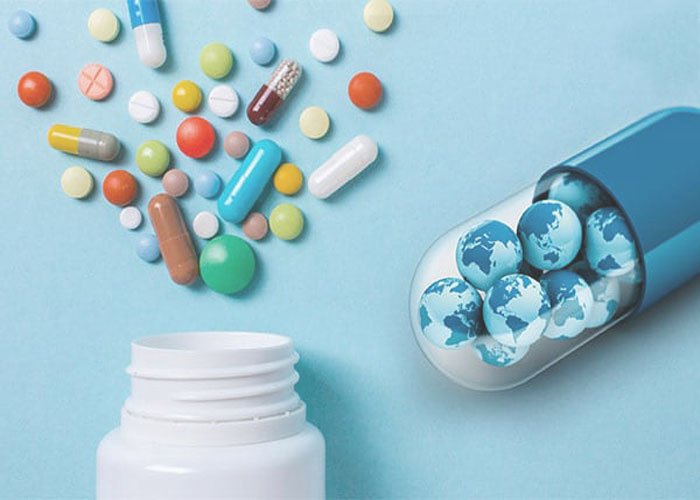Covid-19 outbreak could be a major opportunity for Indian pharma in Africa
The Modi administration had placed an export ban on the drug after the coronavirus outbreak struck India.

The global Covid-19 pandemic has brought the complex interdependencies within the international pharmaceutical industry to the forefront.
China is also the world's largest manufacturer of active pharmaceutical ingredients (APIs), also known as bulk products, as the epicenter of the global outbreak. India, which is the world's largest exporter of generic drugs, relies on China for over two-thirds of its bulk product needs.
According to studies, India provides up to 50% of the generic drug needs of the United States, and vulnerabilities caused by Covid-19 have caused instability across global pharmaceutical supply chains. This could also be a successful opportunity for India to re-evaluate commitments and prepare for the future.
India ranks third worldwide for pharmaceutical production by volume and 13th by value, according to the government's own estimates. This represents about 10 percent of the world's production by volume and 1.5% percent by value. The obvious disparity points to Indian pharmaceutical products 'comparatively low quality, and the high demand they enjoy on the global market. A major supplier of inexpensive low-priced drugs worldwide, India's position as "the world's pharmacy" is well recognized by experts.
A recent joint study by the African Export-Import (EXIM) Bank and the Export-Import (EXIM) Bank of India shows that trade between Africa and India has grown from $7.2 billion in 2001 to $59.9 billion in 2017 by more than eight-fold (pdf) India is currently the fourth-largest national trading partner in Africa. India accounted for over 6.4% of total trade in Africa in 2017, slightly higher than 2.7% in 2001. Africa, however, still accounts for about 8% of India's total trade, equivalent to its 2001 share.
Pharmaceuticals are a major component of India's trade expansion strategy, particularly with the stated aim of the country being to diversify the export profile in terms of both products and destinations. India's export push, along with other sunrise industrial goods such as electronics, is concentrating on pharmaceuticals as global demand expands.
Indian pharmaceutical industry plans to become the world's biggest drug manufacturer by 2030. India plans to increase its revenue from current sales of $38 billion to $120 billion-$130 billion by 2030 at a compound annual growth rate (CAGR) of 11-12%.
Pharmaceuticals are an important component of India's trade expansion strategy, particularly with the country's stated goal of export diversification in terms of both products and destinations.
India's historic function in supporting a large number of relatively poorer nations — especially in Africa in rising their disease burden and coping with Aids, tuberculosis and malaria through low-cost, generic medicines is widely recognized. Pharmaceutical products dominate India's exports to Africa, accounting for around 40% of India's total exports to African markets, along with petroleum products.
Given a increasing buy-in for domestic production within African political leadership and an rising pharmaceutical market powered by improved government and population buying power, an analysis of long-term pharmaceutical export trends from India to African countries has been missing.
India's need to manufacture its own bulk drugs will match well with its ability to become a bulk exporter of drugs to markets such as Africa. In this context, India should consider adopting economies of scale and rising bulk drug production to compete aggressively with the Chinese on the African market.
Indian-specific research Monitoring exports of bulk drugs and formulations to Africa's ten largest pharmaceutical markets over the last three years will inform country-specific policy initiatives for both the government and the private sector.





























